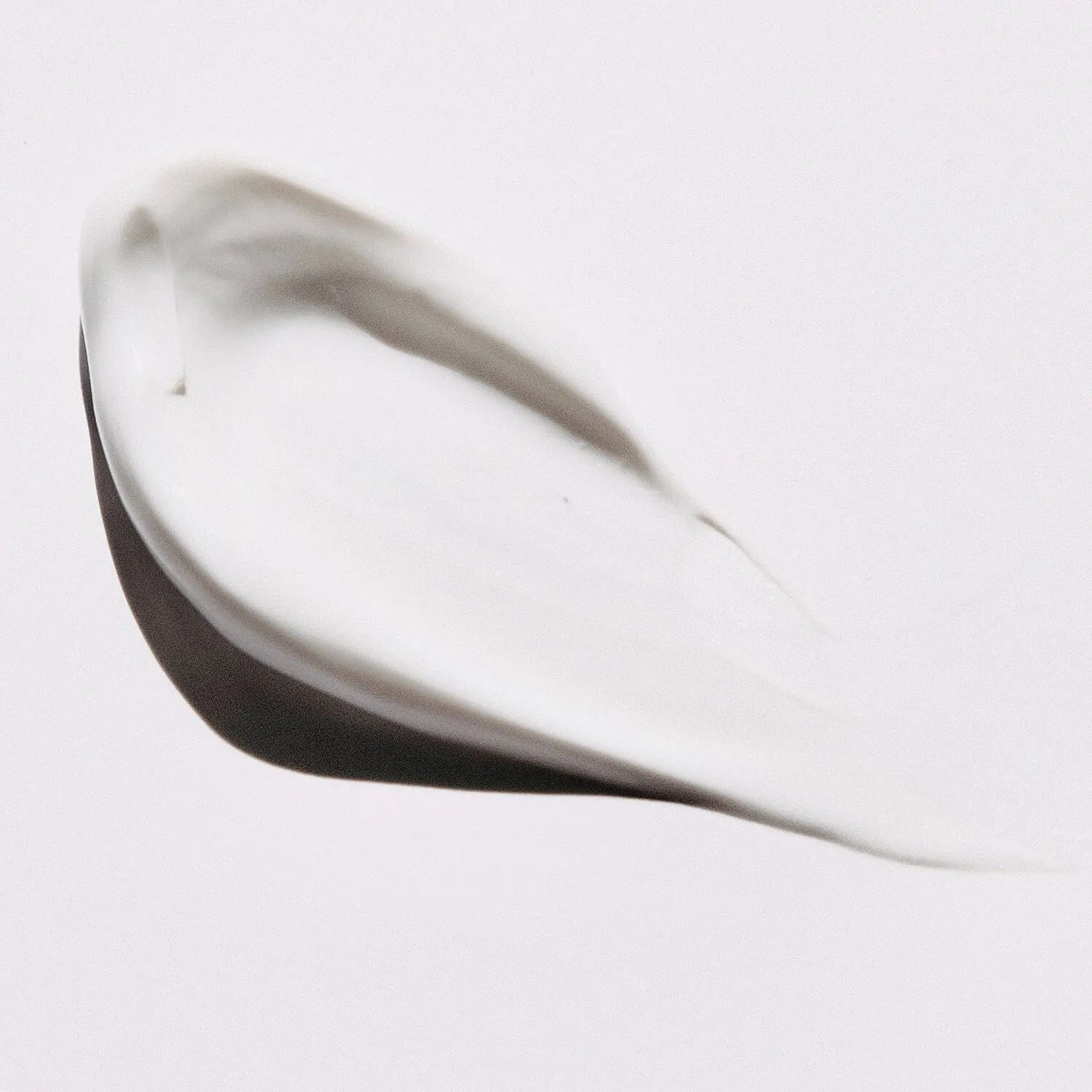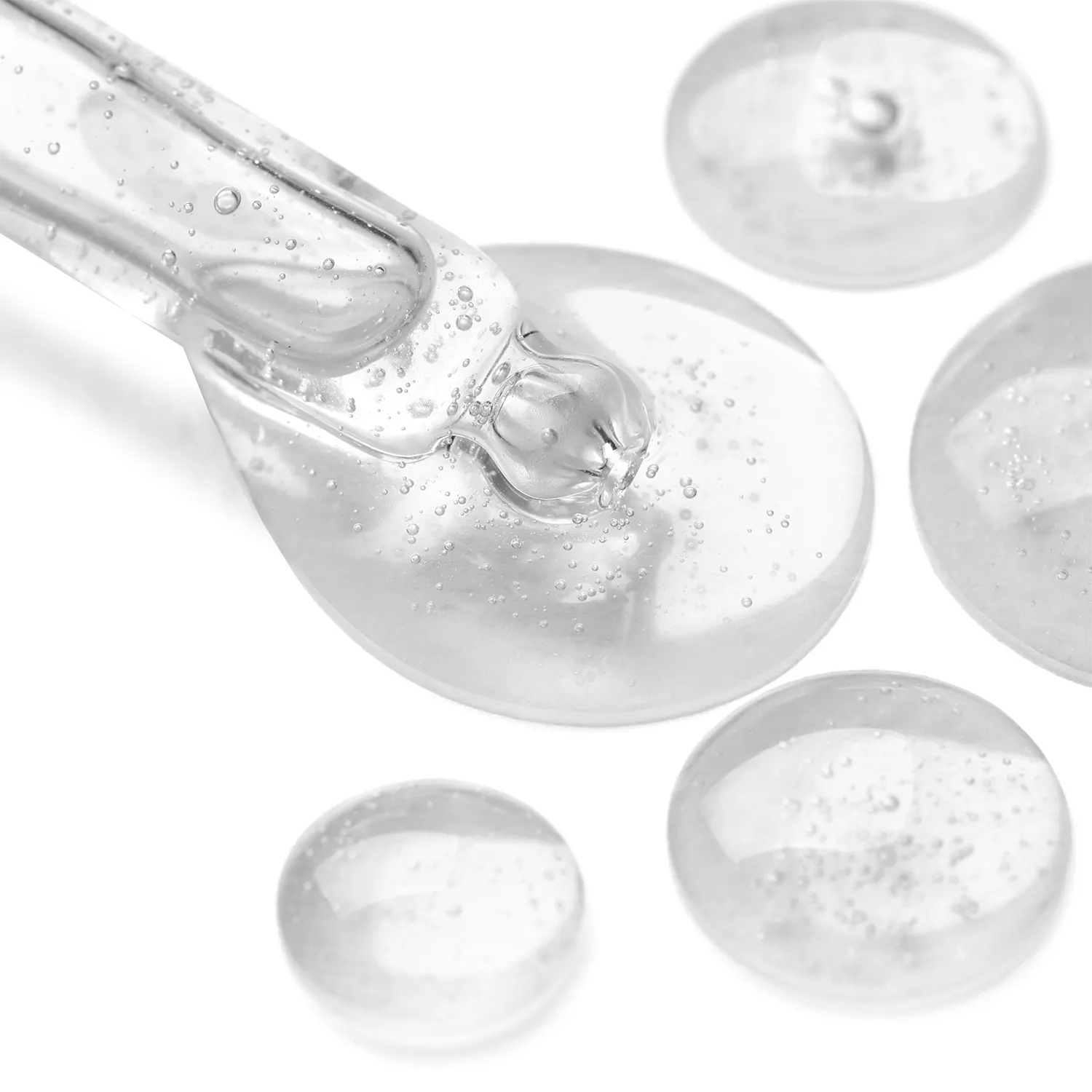
Skin-identical ingredients – How to recognize a good face cream
What care does highly sensitive skin need?
Do you actually know what really matters in good skin care? Especially if you struggle with sensitive, dry, or oily skin, with redness, pimples, or skin conditions, choosing the right ingredients in your skincare routine is crucial. It's all about using ingredients that also occur naturally in the skin's protective layer. Such biomimetic substances—that is, those modeled on nature—can be particularly well integrated into the skin. They strengthen our body's protective layer in its lamellar structure and regenerate the skin's functionality.
What is the importance of a healthy skin barrier?
According to the corneotherapy approach, the primary goal of any effective skin care regimen is to restore and strengthen the skin barrier, part of the horny layer (stratum corneum). This forms our skin's protective shield. So, how can we conceptualize the skin barrier?
The epidermis's barrier layer is structurally similar to a brick wall: Corneocytes form the outermost layer of the epidermis. They are like the bricks in a brick wall. The corneocytes are held together by the skin's own lipids (fats), which are like the mortar in a brick wall. These lipids make up up to 50% of the skin barrier.
What are ceramides?
Ceramides (Latin: cera = wax) are lipids naturally found in the skin. The skin barrier is composed of approximately 60% various ceramides. They form the "cement" between the horny cells of the epidermis. Ceramides are formed by phosphatidylcholine as a membrane lipid. Phosphatidylcholine is therefore a precursor to all ceramides.
Phosphatidylcholine as a precursor of all ceramides
Depending on individual skin needs, phosphatidylcholine produces varying amounts of the nine different types of ceramides that naturally occur in the skin barrier and ensure its proper functioning. An inappropriate distribution of ceramides in a cream—or even a high concentration of just one type of ceramide—can therefore do more harm than good.
In myrto facial care formulations, you won't find the ingredient name "ceramide," but rather phosphatidylcholine in its hydrogenated, stabilized form as "hydrogenated phosphatidylcholine." This allows the body to produce the individually required, naturally perfect blend of ceramides.
What are the functions of ceramides?
Ceramides are still considered an insider tip in skincare. Their job is to strengthen the skin barrier, keeping the skin supple and firm. They minimize moisture loss (TEWL = trans epidermal water loss), stimulate collagen production, and thus delay the skin's aging process. As an essential component of the skin barrier, ceramides prevent harmful external irritants such as allergens, bacteria, or viruses from penetrating the skin. They thus counteract inflammation, blemishes, and pimples.
Skin-identical facial care with DMS creams
Our DMS facial creams were developed to give sensitive and problematic skin exactly the care it truly needs. DMS stands for "Derma Membrane Structure." DMS creams mimic the skin barrier by being composed of microscopic, lamellar lipid layers with water-containing substances sandwiched between them. This highly effective skin care is biomimetic, meaning it follows nature's example.
The difference between a cream and conventional oil-in-water or water-in-oil emulsions can be seen in the ingredients in the INCI list, especially in the skin-related lipid substance "Hydrogenated Phosphatidylcholine." With phosphatidylcholine, you can be sure that the other active ingredients in a formulation—such as vitamin C or niacinamide—will penetrate particularly deeply into the skin, are gentle on the skin, and have a long-lasting effect.
Lamellar lipid structure
Skin-identical face creams have a lamellar lipid structure—just like the skin barrier. The oily and aqueous components of such biomimetic creams are linked via phosphatidylcholine, the skin's own emulsifier. These minimalist formulations rebuild and strengthen a weakened skin barrier.
Valuable skin-identical ingredients are:
- Phosphatidylcholine ✓ occurs in hydrogenated form as "Hydrogenated Phospatidylcholine".
- Ceramides ✓ are naturally formed by phosphatodylcholine.
- Linoleic acid ✓ is also contained in phosphatidylcholine at approximately 60%, and high amounts are also found in grape seed or argan oil.
- Linolenic acid ✓ is mainly a component of pomegranate seed, evening primrose or hemp oil.
- Hyaluronic acid ✓ binds up to 1000 times its molecular weight in water.
- Squalene ✓ is contained, for example, in amaranth seed oil, in saturated form as squalane.
- Beta-glucan ✓ builds up the skin barrier, binds moisture deeply, has an anti-inflammatory effect.
What are the benefits of skin-identical facial care?
-
Optimized skin compatibility
Biomimetic DMS creams, with their lamellar lipid structure, offer the highest possible skin tolerance – not only for hypersensitive, itchy, or irritated skin, but also for skin conditions such as atopic dermatitis, rosacea, acne, or psoriasis. The explanation: ingredients that naturally occur in our skin in the same or similar form can be integrated particularly well. -
Strengthening the skin barrier
An intact skin barrier is a fundamental prerequisite for long-term youthful and firm skin. DMS creams regenerate and strengthen the skin barrier. They are able to "melt" with the skin barrier and repair porous areas of the skin barrier. -
Deep effect through liposomal encapsulation
Skin-identical lipids such as phosphatodylcholine have the ability to encapsulate active ingredients as liposomes (ancient Greek for fat cells) with the help of their phospholipid bilayers and transport them into the deeper layers of the skin. Liposomal encapsulation extends the duration of action of the active ingredients and further improves their skin compatibility. The skin-identical natural active ingredient phosphatodylcholine, derived from sunflowers, is an essential component of all myrto face creams and most of our face serums. -
Improved immune protection of the skin
Harmful microorganisms such as bacteria or viruses, allergens and irritants are repelled by a strong protective skin barrier, so that blemishes, pimples or pustules do not even develop. -
No unnecessary additives
Myrto facial care products contain a minimal number of exclusively high-quality natural ingredients. They contain no fillers. They are free from additives such as alcohol, fragrances, common emulsifiers, or synthetic preservatives.
Are there any tips to further strengthen the skin barrier?
1. Use mild cleaning products
- Use gentle, pH-neutral cleansing products without aggressive surfactants such as sulfates.
- Avoid hot water – lukewarm water is gentler on your skin.
- Double cleansing can be helpful, but only with mild products.
2. Add moisture & lipids
- Use biomimetic DMS creams with skin-like lipids such as phosphatidylcholine and ceramides.
- Moisturizers such as hyaluronic acid, glycerin or beta-glucan help to bind water in the skin.
- Vegetable oils containing linoleic acid (e.g. grape seed, argan or hemp oil) promote regeneration.
3. Don't forget UV protection
- UV rays damage the skin barrier – daily sunscreen with a mineral filter protects the skin.
4. Avoid irritants
- Avoid alcohol, fragrances, synthetic emulsifiers and preservatives in skincare products.
- Look for minimalist formulations with well-tolerated, natural ingredients.
5. Healthy nutrition & hydration
- A balanced diet with omega-3 fatty acids (e.g. from nuts, linseed oil or fish) supports the skin structure.




